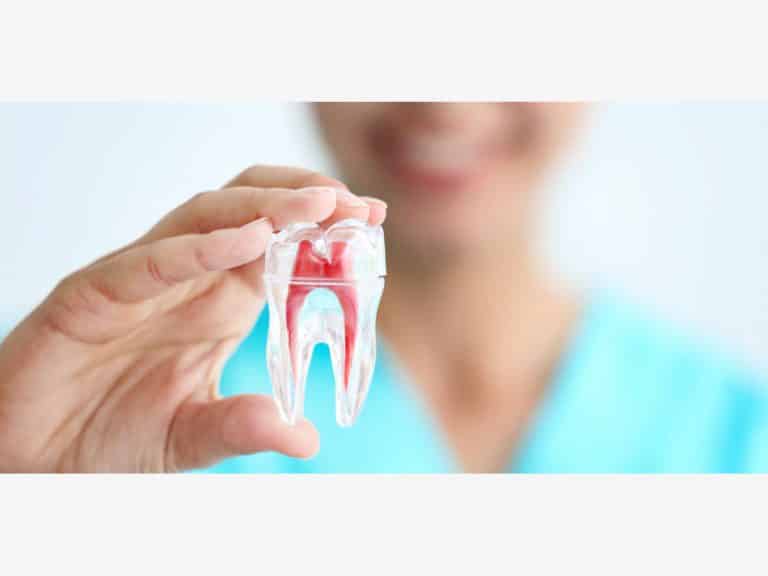Painless Root Canal In Dental Designer, North Plainfield, NJ

Cavity free teeth help in having good oral health. Cavities often result in tooth pain accompanied by sensitivity. However, if the cavity goes deep into the tooth, it often infects the root canal making the way for further infections.
Dr Harmanpreet Kaur, based in Plainfield, New Jersey, comes across many patients who often come with issues like toothache and sensitivity which sometimes is a result of a deeply embedded cavity. One of the prominent dentistry services provided by Dental Designer, NJ is a Root Canal Treatment.
What Is A Root Canal Treatment?
A root canal treatment involves treating the tooth which has become decayed and infected greatly. It actually involves removing the decay and infection from the canal (the natural cavity) of the root. This natural canal has the pulp or pulp chamber as well as the nerve of the tooth.
In certain cases, patients do not seek immediate dental care for cavities.
This leads to the cavities going deep into the tooth and affecting the canal. If and when the pulp or the nerve is affected, bacteria begin to multiply which in turn causes further damage to the tooth due to infection.
A root canal aims to protect the teeth from any further damage like excessive swelling to the cheeks and formation of abscesses. An abscess is a pus-filled pocket that forms when the infection reaches the far end of the root of the tooth.
Apart from the formation abscess, an infection can also lead to the spread of swelling to other parts of the face, bone loss around the tip of the root, etc.
Proper and timely treatment can help the tooth from becoming completely damaged. This can be achieved with the help of a root canal.
When Does One Need Root Canal Treatment?
Cavities are very common issues faced by many individuals. Their timely treatment can help one restore their healthy teeth. However, sometimes cavities are not paid attention to and this causes them to go deeper into the tooth further damaging the teeth. These are some of the common signs indicating that a person needs a root canal:
- Severe toothache which often gets unbearable when chewing.
- Darkening of the tooth.
- Increased sensitivity in the gums surrounding the tooth.
- Sensitivity when eating hot and cold foodstuffs.
These are some of the most common symptoms when one can realize that it is time for a root canal treatment.
In certain cases, surprisingly, no symptoms can be observed. However, routine visits to the dentist’s office can help one spot, and then stop the damage on time. This is the main reason Dr Harmanpreet Kaur focuses greatly on timely dental visits
What To Expect At An Appointment With Dr. Harmanpreet Kaur For Root Canal?
Dr Harmanpreet Kaur is a qualified and accredited dentist based in Plainfield, New Jersey who is known for thorough evaluations before reaching a diagnosis.
A one-on-one discussion with Dr Kaur about your needs and requirements will take place. She will also ask you about your oral care habits and dietary choices to understand your case completely.
The next step is a dental exam. Dr Harmanpreet Kaur will examine your mouth and teeth. In case she is satisfied with this evaluation then she will prescribe the course of treatment. In case she believes more data is necessary to check the damage done by cavities, then she will take dental X-rays of your teeth.
Once the examination, discussion, and x-rays are done, Dr Harmanpreet Kaur will inform you of the severity of your cavities, what areas they are affecting and how a root canal will help to restore the health of the tooth.
You can use this time to ask her all your doubts including those about dental insurance, risks related to treatment etc. Dr Kaur will clear all your doubts and begin your treatment.
What To Expect Before The Procedure Of A Root Canal?
A root canal treatment does not often require any specific tests as such. However, before the treatment begins, an x-ray of the affected area is taken.
This helps Dr Harmanpreet Kaur to understand the severity of the infection, the shape of the root canals as well as whether the infection has spread to the surrounding bones.
Also, any impending allergies must be informed to Dr. Harmanpreet Kaur. Apart from that, it is necessary for the patient to have a calm and relaxed mind for the procedure to go smoothly.
How Is A Root Canal Procedure Performed At Dental Designer, NJ?
- A root canal generally requires more than one treatment session at Dental Designer, NJ. The number of sessions depends on each individual and their unique case. The severity of the infection is what decides the course of treatment.
- A root canal is often associated with painful treatment. However, that is not the case always as some patients do not experience pain. Nevertheless, to keep the patient pain-free, it is generally done after administering local anesthesia. This helps the patient to remain calm and relaxed throughout the procedure.
- After the administration of anesthesia, in order to keep the tooth dry and free from saliva, a rubber dam is kept around the tooth. This rubber sheet will help in keeping the tooth dry.
- After this, the tooth is generally drilled to form a hole. This hole helps to provide access to the root canal and the infected area inside.
- The decayed nerve tissue, the bacteria-infected pulp, and other debris are removed through this hole with the help of tiny root canal files. These files are pointy, needle-like which are inserted into the hole till the end of the root to remove the decayed and infected part from deep within.
- The hole is cleaned of the debris periodically with the help of water or sodium hypochlorite
- In certain cases, this cleaning is distributed over a span of a few days if the decay is extensive. During this period, the dentist might temporarily seal the tooth and then reopen it during the next session to continue the procedure.
- After the tooth is cleaned completely, it is sealed. Generally, the tooth is sealed after a week of its cleaning. During this period, medication might be placed inside the tooth to clear it of any and all infection.
- After a week, the interior of the root canal is filled with a solution called ‘gutta-percha’ and a filling is placed to seal the exterior hole created to access the root canal.
- The last step involves the restoration of the tooth. As a large amount of filling is placed after healing extensive decay, a crown must be placed in order to restore the tooth to its complete capacity. This crown also ensures the tooth looks naturally cohesive with the other teeth.
Root canal treatments are tremendously successful and the results are long-lasting if proper care is taken in order to maintain oral health.
How Is The Recovery After A Root Canal?
The recovery after a root canal is quite comfortable. Some patients might observe sensitivity due to natural tissue inflammation. However, this is temporary. In order to counter this inflammation, Dr Harmanpreet Kaur might suggest some pain medications which when taken as prescribed can help in having a smoother recovery.
The care that must be taken in between the sessions is instructed by Dr Harmenpreet Kaur. These instructions must be followed to the T in order to have smooth transitions in between the sessions.
Apart from this, it is necessary to follow certain steps like brushing the teeth twice in a day, flossing, using an antiseptic mouthwash, and regular visits to the dentist in order to keep the oral health excellent and intact. This will also help to maintain the result of a root canal.
What Are The Risks And Complications Associated With A Root Canal Treatment?
Here are some of the rare risks and complications with root canal treatment:
- The number of roots might be more than speculated which might leave one of the roots infected thus contaminating the treated root canal.
- There might be an unnoticed crack in the root of the tooth.
- The internal sealing might break making a way for infection again.
- There might be defective teeth restoration which might result in bacteria recontaminating the area.
In such cases, retreatment of the affected area is advised.
Dental Designer, NJ takes utmost care at all times to avoid these risks and complications from turning into a reality.
Is Root Canal Covered By Dental Insurance?
Most of the insurances at least partially cover a root canal. It is necessary to get into touch with the dentist in order to analyze and implement this aspect of the treatment.
Consult Dr. Harmanpreet Kaur

As a general dentist, Dr. Harmanpreet Kaur is committed to providing comprehensive care and clinical excellence.
She has more than 15 years of experience as a General Dentist and is a member of the American Dental Association and the American Academy of Implant Dentistry.
Dr. Harmanpreet Kaur attended New York University College of Dentistry for her dental education (DDS) and graduated with Honors. Before taking over Dental Designer in 2016, Dr. Kaur worked in several high-quality dental offices in Central Jersey.
She is committed to offering her patients the same level of clinical excellence as she learned from her world-renowned teachers/practitioners. Passionate about the importance of continuing education, Dr. Kaur has completed extensive advanced training in cosmetics, oral surgery, and anesthesia.

